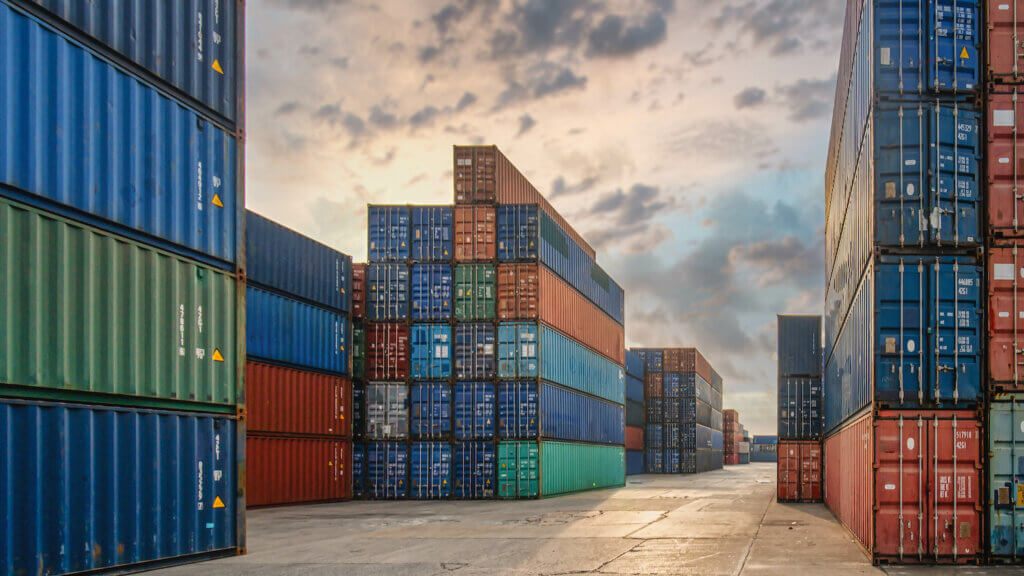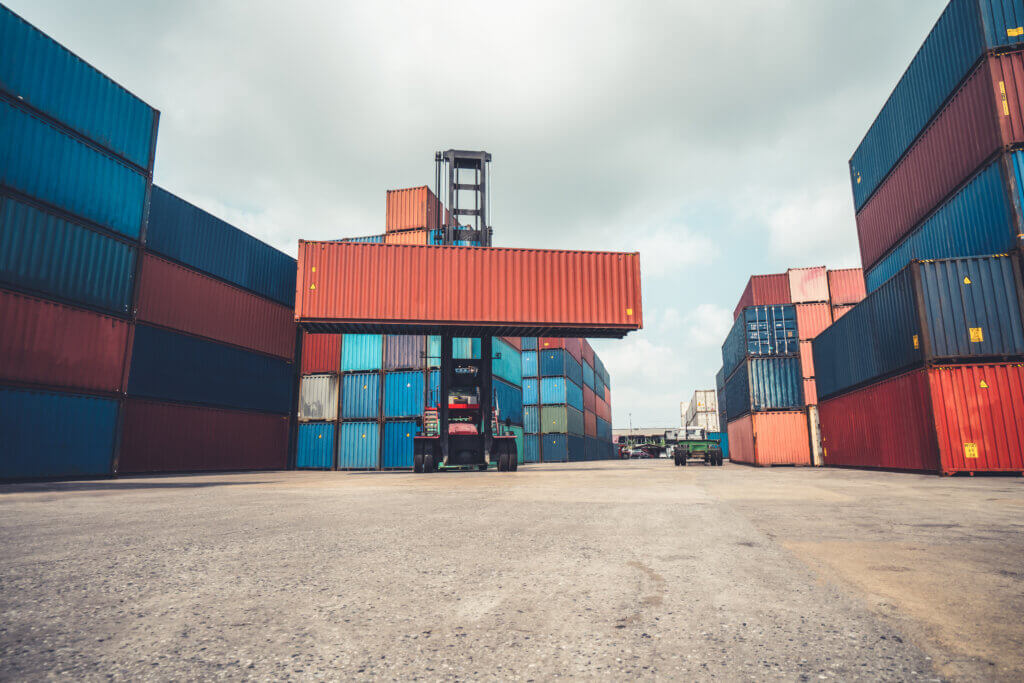Ocean freight shipping can be very expensive. But if you really need it, you can manage to wrap your head around the expensiveness. What you may not be prepared for, though, are demurrage charges. And these charges can rack up to thousands of dollars.
We can imagine thousands of dollars of unexpected charges are the last thing you want. But until you learn how to avoid demurrage charges, you had better prepare to part with those bucks.
That is why we reserve this article to teach you what demurrage charges are and how to avoid them.
What Are Demurrage Charges?
For consignees importing cargo, demurrage is the charge you pay when you don’t move your cargo from the shipping terminal on time. And if you’re exporting cargo, demurrage is the charge you pay for every day your cargo spends at the shipping terminal without being loaded on a ship.
Before a shipping port charges demurrage, though, you must have exceeded the free days allotted to your cargo. These free days are how long your cargo can stay at the shipping terminal without attracting charges. But the length of your free days depends on the shipping port.

How To Avoid Demurrage Charges
The best time to avoid demurrage charges is before you are charged. If you wait until you’re charged there most likely wouldn’t be so much to do.
So, how do you avoid demurrage charges?
- Plan and prepare
The first thing that’ll help you avoid demurrage charges is to start your planning and preparations early. Your plans should involve preparing who should pick up your cargo, when the carrier should pick up your load, and where your shipment will go immediately after leaving the shipping terminal.
Failure to plan adequately could cause you to run late and even exhaust your free days.
- A reliable drayage carrier
A reliable drayage carrier who will not disappoint you all of a sudden will help you avoid unnecessary demurrage charges. Some drayage carriers have more customers than their workforce can handle. As a result, they always show up late for pickups.
Apart from picking up your cargo on time, your drayage carrier should also be able to keep your shipment safe and in good condition while in transit. This could translate to the carrier transporting your load in a reefer if you’re shipping temperature-sensitive cargo.
If your drayage carrier falls short of these, either get a new reliable carrier or proceed with caution with such a carrier.
Total Connection is as reliable as any carrier can be. That is why hundreds of clients trust us with their port drayage.
- Communicate with your trading partners
Proper communication with trading partners about the shipping details of your cargo helps them know when to initiate drayage for your shipment.
Sometimes, it’s not your carrier’s fault. It’s not your fault either. Miscommunications can often be this way. What you have to do, however, is to ensure that it never happens.
Ensure that your trading partners know and understand the content of your container. Only then can they know how best to prepare its drayage. Also, keep them updated on any changes to the arrival time of the cargo at all times. And you wouldn’t be doing too much if you reminded them about the load now and then.
Just make sure that everyone involved in clearing your cargo from the shipping terms has clear instructions on what to do and when to do that.
An experienced carrier, like Total Connection, already has a lot of experience handling drayage. So you can rely on our expertise to help you avoid demurrage charges.
- Preclearance
Preclearance is going to save you so much time. Now that we can transfer documents electronically, you can begin the preclearance of your cargo with the customs even before the ship docks. This way, you may not even use up all of your free days before your container leaves the shipping terminal.
- Negotiate for more free days
While it might be difficult to negotiate your demurrage charges and free days, it never hurts to try it, especially if you have voluminous cargo coming in.
Consignees who have a lot of cargo to clear can use their voluminous cargo as leverage to secure more free days.
- Backup plan
Always have a backup plan for when your initial plan goes down the drain. Issues like port congestion can tamper with your initial plan. But with a backup plan, you can save time and avoid demurrage charges.

How Much Do Demurrage Charges Cost?
Demurrage charges can cost anything from $200 upwards, depending on how long your cargo spends at the shipping terminal.
Demurrage charges are calculated based on daily rates, often falling within $70 to $150, depending on the port. That rate, however, is for the first few days of charge-able delay. Generally, the longer your cargo spends at the shipping terminal, the higher your daily rates go. And when your daily rates go up, your total demurrage charges follow suit.
Assume you leave your cargo at a shipping port for ten days after your free days, for instance. Your total demurrage charges in a shipping port that charges a $100 daily rate for the first five days and $150 for the next ten days would be $1250 ($500 for the first four days plus $750 for the last five days).
Can You Negotiate Demurrage Charges?
You can attempt to and maybe even succeed at negotiating demurrage rates, but this has to be before any contract is drawn. Once an agreement has been drawn, you can no longer negotiate or avoid the charges.
Demurrage rates are standard and often immutable. So, don’t expect to negotiate it successfully or feel entitled to a discount. But if you’re successful in getting a discount off your demurrage charges, good for you.
Why Is Demurrage Charged?
The shipping business is very complicated and time-dependent. Everything has to be done on time and according to schedule. But you accumulate demurrage charges when you cause delays to the plans by not picking up your cargo from the shipping terminal on time. This fee the shipping port takes in place of the time wasted.
Common Causes of Demurrage
Although we have discussed how to prevent them, knowing the causes could equip you even better to avoid demurrage charges.
These are the common causes of demurrage:
- Miscommunication between the carrier and the consignee
Miscommunication can be costly in shipping and any other area. So, when the shipper and the consignee have not come to specific and well-defined agreements about picking up the shipment at the shipping terminal, demurrage charges could be the consequence of the ensuing delay.
- Documentation issues
Documentation issues of the cargo may also lead to plate clearance. Late clearance may exhaust your free days, and demurrage will be charged from the day you exhaust your free days.
Documentation issues arise when the consignee receives incomplete or incorrect documentation, or the documents don’t get to the consignee in time to start cargo clearing.
- Customs
Clearing your cargo on time with the customs can help you avoid demurrage charges. Documentation issues could further delay your clearance with the customs. That is why we advise that you pre-clear your cargo before it arrives at the port.
- Inadequate clearing budget by the consignee
When the consignee fails to prepare an adequate budget for transporting the cargo out of the port, the shipment remains on the shipping port, accruing demurrage.
- Port Congestion
This is another common cause of demurrage. It happens when there aren’t many storage facilities inland, such as warehouses, to hold your cargo. Your cargo then remains on the shipping terminal, where it continues to gather demurrage.
- Consignee is uninformed about the arrival of cargo
A consignee who is uninformed about the arrival of their cargo may not be able to avoid demurrage. This is why it is always important to track your cargo and have all the necessary information about the shipment’s arrival.
- Inspections lasting longer than planned
If an official stops your container for inspection, and such inspection lasts for too long, you may be forced to bear the brunt of the delay.
- Dispute between carrier and consignee
Disputes between carriers and consignees can lead to loads not being picked up on time. But they’re not very common. Demurrage charges are the result, nonetheless. It is, then, vital that you maintain a good relationship with everyone you work with for the sake of avoiding demurrage charges.
Let Total Connection Help You Avoid Demurrage Charges
While there’s a lot you can do to avoid demurrage charges, you don’t have control over your drayage carrier. Even if you both have had an agreement before the arrival of your cargo, an unreliable drayage carrier can still let you down. Fortunately, this is what Total Connection helps you avoid.
Total Connection is a third-party logistics company with decades of experience handling all kinds of carrier services, including drayage. Our extensive network and our connections can help you save a lot of time, ultimately avoiding demurrage charges.
We also have warehousing capabilities that are close to ports. The warehouses help us guarantee our clients superior cargo safety and peace of mind.
You can fill out the brief quote form below, telling us about your cargo. Our experts are waiting on the other side to help you with whatever you want.
